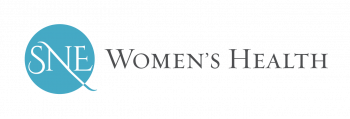Contraception and Breast-feeding in Southern New England
About Contraception and Breast-feeding
Breast milk provides the best nutrition for infants. In addition, during breast-feeding, the infant receives antibodies from the mother that helps the baby’s immune system develop. In the United States, many women work. However, it is possible to continue to breast-feed after returning to work. Working mothers can use breast pumps to keep providing breast milk to their infants. Discuss the options with your clinician, family members and your employer. Many employers can provide facilities to aid in breast-feeding.
Not necessarily. During breast-feeding, the chance of getting pregnant is lower. However, women can still get pregnant. The sucking of the nipple helps prevent ovulation (release of an egg). The most complete protection from ovulation and pregnancy comes when mothers only breast-feed. That means the mother is feeding the baby on demand, including during the night, and not giving ANY extra feeding with a bottle. Many women do not wish to nurse this way.
It’s a good idea to discuss contraception with your clinician before you give birth. That way you can decide which method is best for you without the added pressures of a new baby. Another good time to discuss birth control is before you leave the hospital. Breast-feeding women have many birth control options.
- Condoms and spermicides — Condoms and spermicides, such as foam or cream, can be used with no impact on breast-feeding. The vagina of the nursing mother might be dryer than normal, which can make condoms irritating. If this is a problem, use additional lubrication.
- Barrier methods — Barrier methods, such as the diaphragm and cervical cap with spermicides, have no effect on breast-feeding. Check with your clinician to refit the device because you might need a larger device after having a child.
- The intrauterine device (IUD) — The intrauterine device (IUD) is very effective at preventing pregnancy. Two types of IUDs are available in the U.S. — a copper-containing device and a progesterone-containing device. Neither IUD affects the quality and quantity of breast milk. The progesterone IUD releases a very small amount of hormone into the uterus, where it works locally. Women who breast-feed can have the IUD inserted after the uterus returns to its normal shape and size.
- Tubal sterilization — Tubal sterilization (“having your tubes tied”) affects breast-feeding only if general anesthesia is required (if you have to be put to sleep during the operation). Anesthetic medicine can pass through the breast milk. This breast milk should be discarded for 24 hours after your surgery. You can keep the milk coming by squeezing it out by hand or by using a breast pump. Regional anesthesia, which makes your belly numb although you are awake, is often better for a number or reasons.
- Progestin-only oral contraceptives or “the Mini-pill” — The mini-pill contains only a progestin (female hormone). The method, when used daily is highly effective for breast-feeding women. This method of contraception has a slightly higher failure rate than oral contraceptives (OCs) containing both estrogen and progestin. During breast-feeding, however, women are not as fertile. A small amount of hormone passes into the breast milk but has no known bad effects on the infant. Indeed, some studies have suggested a good effect on the quantity and quality of breast milk. When the woman stops breast-feeding the baby, some clinicians suggest switching to combination OCs, which have a slightly higher effectiveness.
- Combination oral contraceptives or “The Pill” — Combination oral contraceptives contain both estrogen and progestin. The American Academy of Pediatrics has approved the use of low-dose OCs in breast-feeding women once milk production is well established.
Some clinicians prefer breast-feeding women to use non-hormonal methods or the mini-pill because estrogen has been shown to reduce the milk supply. While small amounts of hormones might pass to the infant through breast milk, no detrimental effects to infants have been observed. A long-term Swedish study has found no harmful effects on the development of children whose mothers used OCs during breast-feeding.
- Injectable contraception or “The Shot” — Injectable contraception can be safely used during breast-feeding and does not suppress milk production. At least one study suggests that this method of contraception might have a beneficial effect on the quality of breast milk in terms of its fat concentration, calories, minerals and protein composition.
Take a Look at Our Providers
We are committed to our patient’s well-being and will conduct business with integrity, respect and compassion. Let us meet your health care needs.
